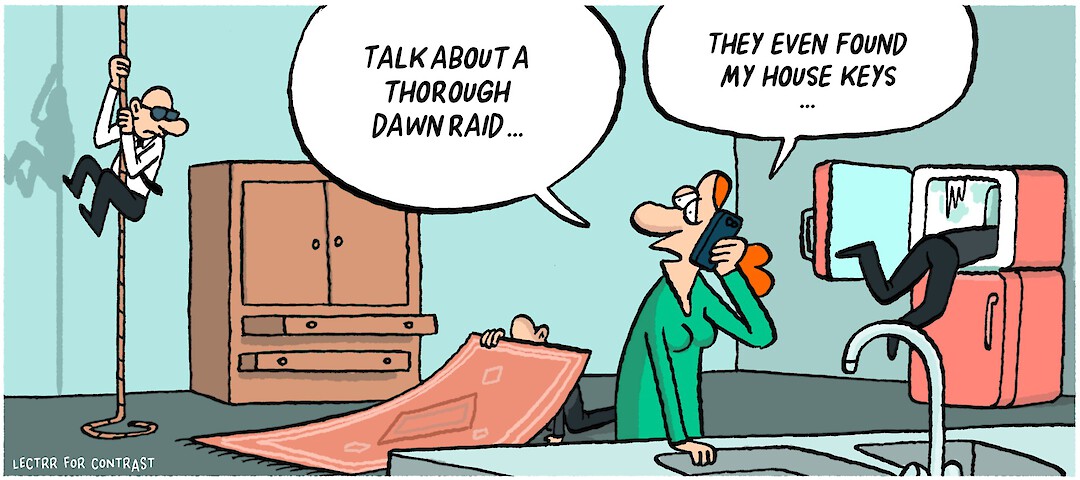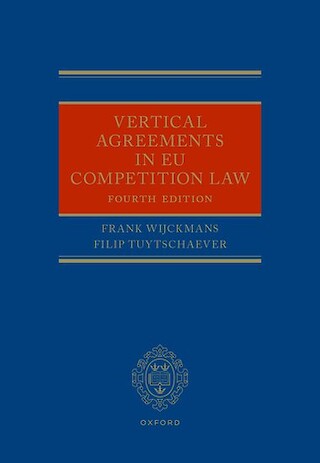In the Picture

Ready for a (home) search by the competition authority?
October 2021Imagine…
You are the president of a European professional association. Due to the corona pandemic, in recent months you have been working at home. Documents for the association have also regularly been sent directly to you at home by courier. You still have not found the time to send them back to the association’s secretariat.
One fine Tuesday morning, the doorbell rings. Police officers are standing in front of your door, accompanied by two officials from the European Commission. They show you a search warrant and say that they would like to go through your home office. From the warrant you understand that they are conducting an investigation into a matter that had been discussed the previous year within the professional association.
To say the least, you are surprised to see the European Commission appear at your doorstep with a search warrant. You had already heard occasionally about “dawn raids”, but surely that was something only done at companies, not in private homes? How does this work, exactly?
A brief clarification.
A central task of any competition authority is to investigate compliance with the competition rules and, as applicable, to establish violations and sanction them. Within the framework of its investigative powers, the European Commission (just like the national competition authorities) has the possibility of carrying out so-called dawn raids.
Dawn raids are unannounced searches via which a competition authority verifies whether its suspicions that competition law has been violated are indeed justified. The searches are traditionally done in the offices of the company or professional association under investigation. Not only business premises but also company cars can be searched.
However, a competition authority also has the power to conduct searches in private homes (and private cars) of e.g. the managers, directors or other personnel members of the company or association. For this they must have a reasonable suspicion that documents which are relevant for the investigation are located in those places. Moreover, they require a prior court authorisation for doing such searches.
Companies and associations have a duty to cooperate in any investigation of a competition authority. Refusing to cooperate, or doing so only partially, can cost them dearly – literally so, since the competition authority can impose fines and daily penalties as a means of compelling cooperation. This is also the case for a search in a private home. As president of the professional association, you thus have every interest in lending your full cooperation to the search.
Concretely
Adhere closely to the following rules if a competition authority comes knocking at your door:
- Ask to read the search warrant. Check whether your details are correct and what the precise object of the investigation is.
- Give the inspectors access to your residence (and possibly car) if the search warrant relates to them.
- Ask the inspectors whether they would be willing to briefly delay beginning their search so that you can call on the assistance of a jurist or lawyer. However, do not try to impede the start of the search if the inspectors insist on commencing before the jurist or lawyer arrives.
- If the search begins before your legal assistance is there, ask whether you may remain present during the search. The documents that the inspectors look at and copy must relate to the specified object of the search: they do not have the right to conduct a "fishing expedition". In principle, the inspectors also may not look at or copy any legal opinions of your lawyers. In some Member States, including Belgium, under the national law this is also true for opinions prepared by in-house counsel. In case of doubt about particular documents, ask that they be temporarily set aside so that the jurist or lawyer can later go through them together with the inspectors.
- If asked, indicate to the inspectors where specific documents are located.
- If the inspectors pose concrete questions, ask whether you can answer them when the jurist or lawyer is present. If the inspectors do not wish to wait, respond only to questions about specific facts and documents pertaining to the object of the investigation. Answer these questions correctly but concisely. However, do not answer questions if, in so doing, you run a risk of incriminating yourself or the company or association.
- Finally, under no circumstances should you move, conceal or remove documents.
Want to know more?
- Good preparation is crucial for a dawn raid to take place efficiently and correctly. contrast has put together a workshop where the participants are guided step by step through the stages of a dawn raid and a concrete action plan is discussed. After the workshop, the participants get access to a wide range of practical tools in order to be even better prepared for a raid. If you are interested in this workshop, don´t hesitate to contact us for more information by writing to compliance@contrast.law.
- Would you like to know more about searches by the European Commission? See the ´Explanatory note on Commission inspections´.
- Would you like to know more about searches by the Belgian Competition Authority? See the 'Guidelines of the Belgian Competition Authorities on the search procedure' (in Dutch).











